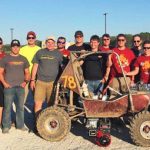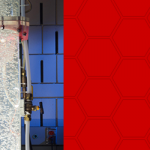Tyler Miller didn’t always know what his path in college would be. Growing up in the small town of Northfield, Minnesota, Miller knew he wanted to do something in the sciences. When it came time to make a decision, Miller turned to his parents who gave him guidance that led him to Iowa State.
Leslie Harder, a senior in chemical engineering with a minor in food science, grew up in the small town of Swisher, Iowa. Throughout her life, Harder’s parents have encouraged by her parents to try new things. She’s participated in dance, soccer, and everything in between and graduated near the top of her class with two recognitions: National Honor Society and Science National Honor Society.
BARABOO, WI: As a future agricultural engineer, Spencer Pech wants to help create a more sustainable form of agriculture that can help feed the world in the future. MSA Professional Services (MSA), Baraboo, WI, recently awarded Pech a $1,000 scholarship for the fall 2016 semester to help him achieve that goal.
Katlyn DeVoe grew up on a dairy farm in in Juda, a small town in southern Wisconsin, where her and her family milked 100 head of cattle. When she was ready to go to college, she wanted to continue to learn more about the dairy industry at a strong university that still offered a small-town feeling.
Allie Flessner, an undergraduate in chemical engineering, recently returned from studying abroad in Mannheim, Germany. She’s says the trip introduced her to a new culture while also helping her learn more about engineering concepts.
Nastaran Hashemi, an assistant professor in mechanical engineering, recently received the University Honors Committee Award for Teaching and Mentoring.
Iowa State’s Baja SAE Team has already won a long race and earned a top-10 overall finish. The team’s racing season still has stops in California and New York. To get ready, the student-engineers have been collecting data and fine-tuning their off-road racer.
Engineers from across the country — including Iowa State’s Ted Heindel — will study the prediction and control of sprays as part of a U.S. Department of Defense research initiative. The engineers say a better understanding of spray physics and control could improve combustion systems, liquid cooling, 3D printing and even help mitigate ship wakes. The Defense Department is supporting the research team with a grant of up to $7.5 million over five years.



